The Garlick Press: Owning Nothing
Living with less in your home may bring you more happiness.
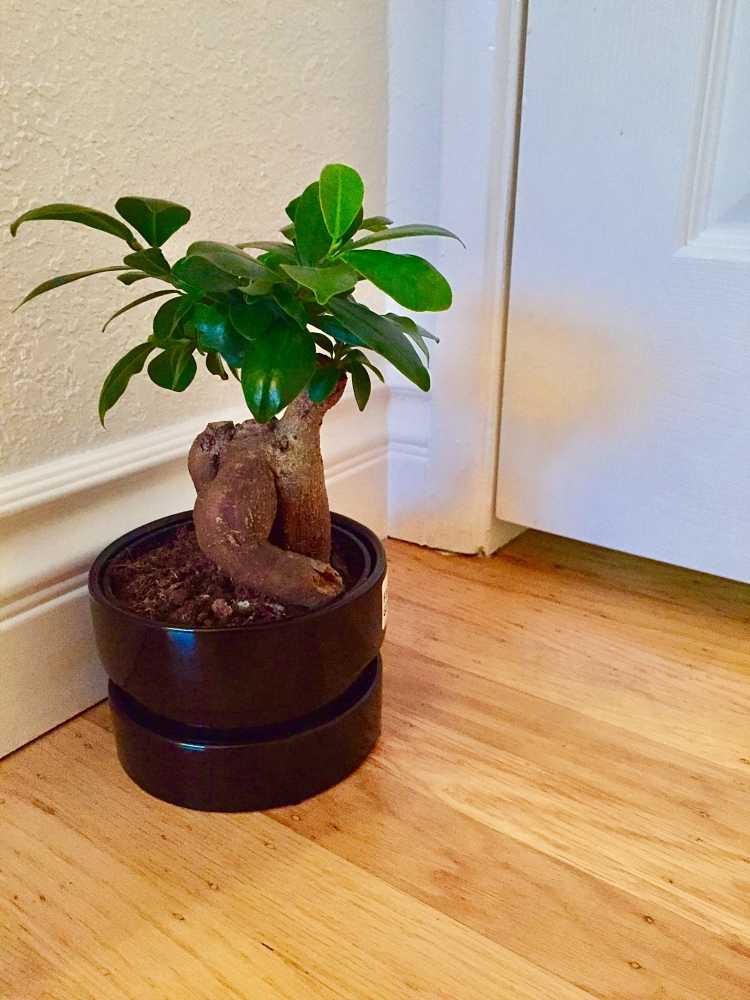
A year ago, I hit rock bottom. Every day came with a depressing haze and thousands of roller-coasting hate comments playing whack-a-mole in my brain. I felt depressed, overwhelmed and lost.
My room was filled with familiar trinkets close to my heart. Boxes and containers filled with art supplies, jewelry and hair scrunchies carpeted my desk. Stacks of books I never read or enjoyed littered my floor, old novelties from past events and birthdays.
One day, I felt my brain jump to overdrive while processing all the stuff in my room. I needed to think, and it wasn’t possible to do with all of the pictures and materials bombarding my vision, each vying for my attention.
At that moment, I thought of a white room. Four plain walls, completely empty. It brought me peace in my mind.
Sitting on my bed, I looked to my feet. I felt the urge to be closer to the floor, and I thought; why don’t I just take out my bed frame?
So I did. In my small 8-by-10 room, I moved my queen-sized wooden bed frame through the door and out into the yard.
Before I thought it through, I began taking out everything. I wasn’t satisfied until all of my stuff was gone, and as I moved things the sense of relief washed over me. Dressers, nightstands and drawers were all banished. Clothes, paints, sketchbooks and boxes of knick-knacks were thrown away or tossed into the attic.
Before I knew it I had scraped the entirety of my room out the door and when I was left in my room, with just my mattress, I cried.
Tears flowed slowly, and then full force. Not of regret, but relief. I was free to think in my own house again, free to confront whatever it was that was bothering me.
I sat on my bed, which was now a foot shorter than before, and I stared at the four blank wall as I sobbed. I breathed for a long time, and meditated.
The rest of that week, I would sit and breath in my room after school and think. For seven days of doing absolutely nothing but staring at walls, it is one of my most memorable moments. Through that whole week, I learned why I was sad and I was able to catch up on sleep and my work without being drawn to the things in my workspace.
Months later I realized my purging of possessions is actually a lifestyle: minimalism.
Driven by the strong minds of many individuals including Joshua Fields Millburn & Ryan Nicodemus, known as the minimalists, the practice of living with a light load is a part of popular culture all over the globe.
In Japan, the lifestyle is very popular and people empty their apartments to the bare essentials. Some influence comes from Steve Jobs, who once worked with nothing but a cup of tea, a light and stereo according to Reuters and Everyday Minimalist. Books such as The Life-Changing Magic of Cleaning Up by Marie Kondō describe how tidying up your house by categories and only choosing things that ‘spark joy’ should be kept.
Minimalism isn’t just the practice of living with less stuff. The concept extends to art and fashion as well as wardrobes and makeup. According to SpyreStudios, the minimalist design movement began picking up speed in the 1920s. It is believed that the condition of having fewer things brings more joy to one’s life. Simply, if something you own doesn’t make you happy, get rid of it.
The lifestyle has many other benefits that go unseen. A decrease in accessories means less spending, meaning you save money and materials.
The practice has also become popular among psychological studies as well. According to Psychology Today, the process of doing laundry, cleaning dishes and keeping a house clean, all add up to create mental exhaustion. The solution is simple: have less stuff, and you may begin to think clearly again.
In my room, I kept essentials such as empty sketchbooks and art supplies while I let go of old yet semi-important memorabilia, like notes from freshman year and outdated sketches. While it’s important to keep things that have sentimental meaning, creating an emotional attachment to a bobble head you think may or may not come in handy in the future is not worth the space.
Overall, I came from compressed in my room among my possessions to lighter than air. If you are in some turmoil in your life, wondering how to clear your mind, maybe it will do some good to get rid of a few things. I appreciated seeing more floor than furniture, and maybe you will too.




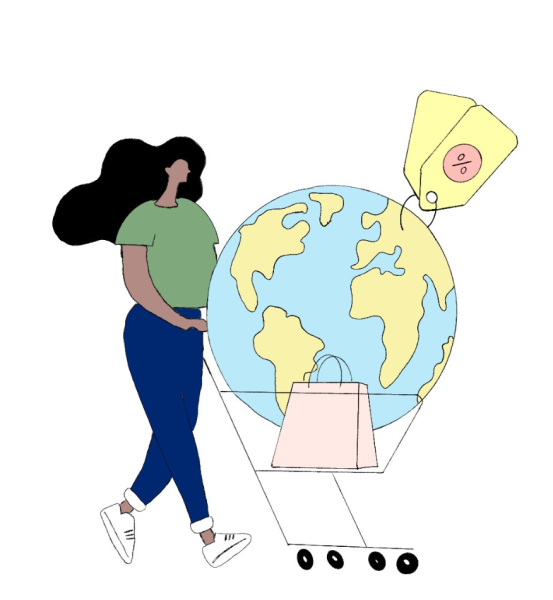

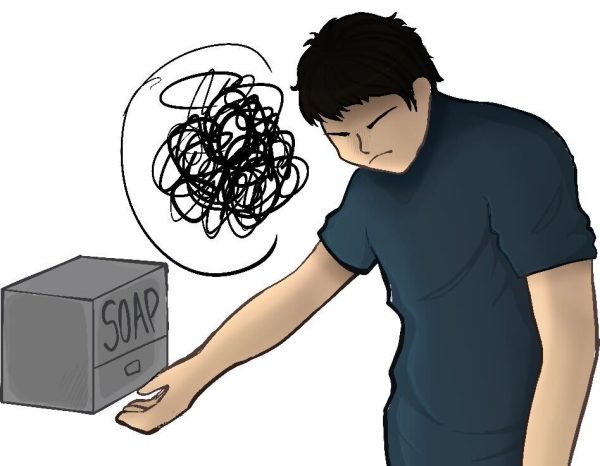
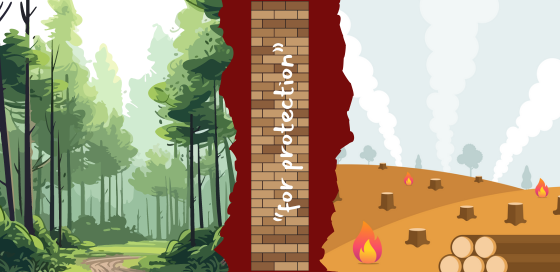
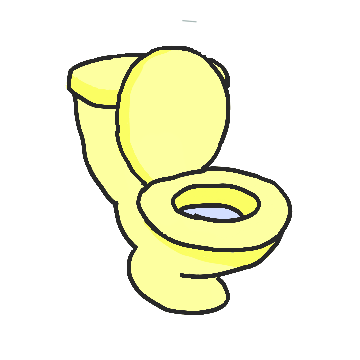
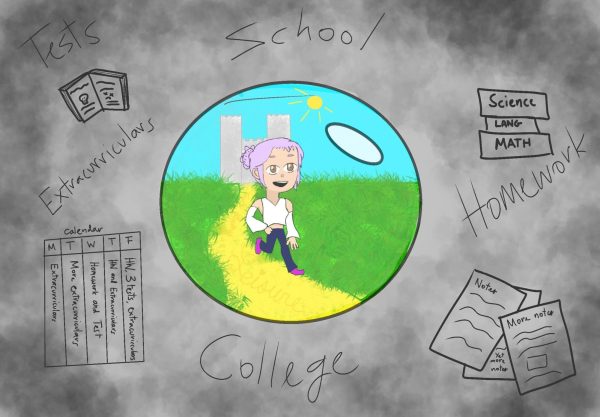
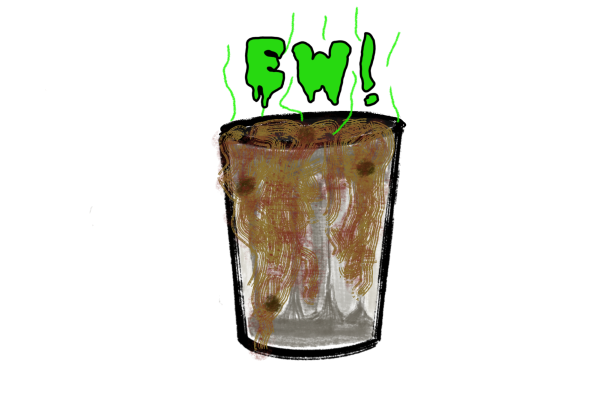
Don garlick • Mar 10, 2017 at 6:04 pm
My garage is an example of a too-stuffed, too-untidy space. I do intend to tidy it. However, much of its contents are essential to my well-being: Sundry tools and paint for repairing home, appliances and implements. And what can I do with a long-life accumulation of things too valuable to dump? Kira, where did you discard your excess items? I do commend you upon seeking a simpler life in this complex world. We wish you the very best.